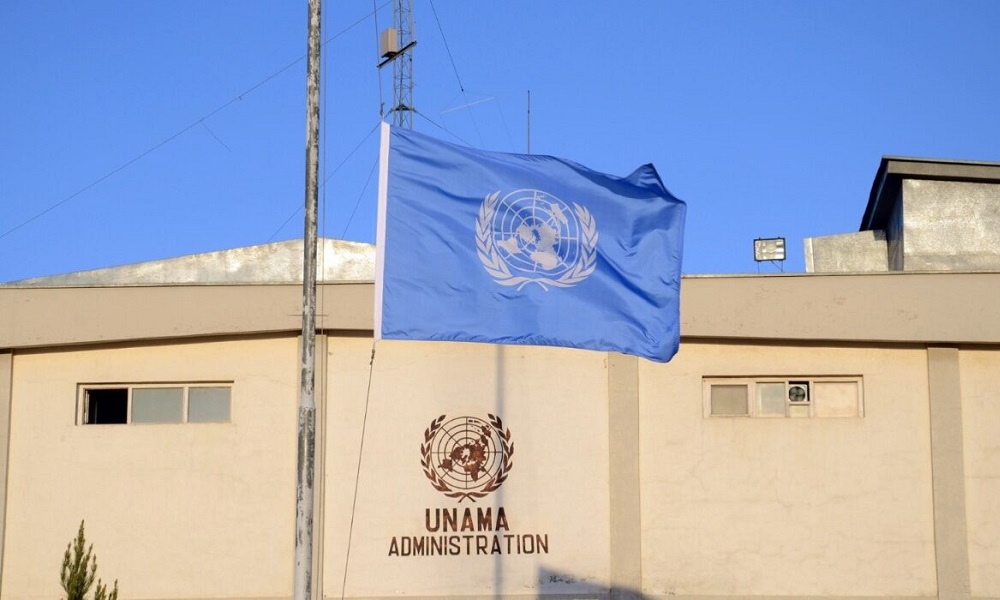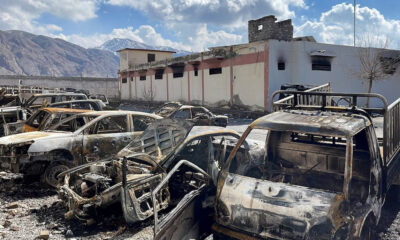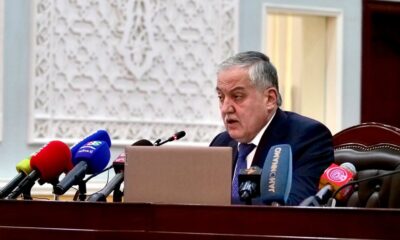Latest News
Afghanistan’s 4 million IDPs need urgent support amid pandemic

Amnesty International has called on the Afghan government and the international community to step up assistance to Internally Displaced People (IDPs) and provide urgent access to adequate housing, food, water, sanitation, and health.
“The Afghan government and the international community must urgently scale up efforts to support the country’s four million internally displaced people (IDPs), who have been left badly exposed throughout the COVID-19 pandemic,” said Amnesty International in a new briefing published on Tuesday.
The briefing, “We survived the virus, but may not survive the hunger” looks at the impact of COVID-19 on Afghanistan’s internally displaced,and details how the pandemic has made an already dire situation for IDPs even more precarious.
Living in overcrowded conditions, with insufficient access to water, sanitation, and health facilities, IDPs have little or no means of protecting themselves from contracting, spreading, and recovering from COVID-19, Amnesty International said.
The briefing also addressed the dire conditions in camps and the inadequacy of aid efforts targeted at IDPs.
Camps are cramped, unsanitary and lack even the most basic medical facilities.
According to Samira Hamidi, Amnesty International’s Deputy Regional Director for South Asia, “Afghanistan’s four million displaced people live in conditions perfectly suited to the rapid transmission of a virus like COVID-19.
“The camps are cramped, unsanitary and lack even the most basic medical facilities. Despite this deadly combination, IDPs have been provided with precious little support to mitigate their situation,” said Hamidi.
“With the number of IDPs increasing daily due to ongoing conflict and the danger of a further wave of COVID infections still present, the Afghan government and international community must do more to protect IDPs.”
“Amnesty International is calling on the Afghan government and the international community to abide by their obligations to IDPs under international law, and allocate specific funding and resources targeted at IDPs to meet their urgent need to access adequate housing, food, water, sanitation, and health,” Amnesty International stated.
Amnesty International spoke to IDPs in settlements in Kabul, Herat and Nangarhar, and found in most cases basic services such as access to water and sanitation have not been provided, and with cramped living spaces, social distancing is not possible, leaving IDPs unable to maintain the hygiene required to prevent the spread of the coronavirus.
Amnesty International also found that IDPs have not been provided with access to adequate medical facilities in the camps.
A 45-year-old woman living in a camp in Nangarhar said: “Most families had the signs of coronavirus, but they were not able to do any test to find out whether they were affected or not. At least seven people who were believed to have contracted coronavirus died in the settlement but again we could not verify due to lack of tests and access to health facilities”.
According to the IDPs interviewed by Amnesty International, there has not been any targeted assistance to women or children by government agencies or international humanitarian organizations during the lockdown.
An IDP in Nangarhar said: “We are living with nothing honestly, we don’t have work, we don’t have money and we don’t have anywhere to live. All I want from the Afghan government and the international community is to help us return to our own villages, help us to rebuild our lives, and live in dignity.”
“COVID-19 clearly presented an enormous challenge to the Afghan government. Though unintended, measures aimed at tackling the pandemic have had a disproportionately damaging impact on IDPs – the country’s most vulnerable group. Dedicated resources and greater support from the international community must be forthcoming to mitigate that impact to the furthest extent possible,” said Hamidi.
Escalating conflict in Afghanistan over the past year has resulted in a rise in the numbers being displaced, with thousands of new cases being registered each week.
According to the UN Office for the Coordination of Humanitarian Affairs, around 327,000 people were displaced in 2020, 80 percent of whom were women and children.
The Afghanistan Humanitarian Response Plan, which envisioned much improved living conditions for Afghans by 2021, remains severely under-funded, with only 23 percent of requirements having been funded as of 24 July 2020.
Latest News
Tajik foreign minister urges international community to help Afghanistan address its challenges

Tajikistan’s Minister of Foreign Affairs, Sirodjiddin Mukhriddin, has called on the international community to step up assistance for Afghanistan as the country continues to face challenges.
Speaking at a press conference, Mukhriddin said Tajikistan and Afghanistan maintain active coordination between their law enforcement agencies to prevent security incidents along their shared border. He noted that this cooperation remains essential, as the frequency of armed attacks and criminal activity in border regions has increased in recent months.
He said that Afghan authorities had assured Tajikistan they would take necessary measures to stop further incidents and would conduct thorough investigations into any violations.
Mukhriddin emphasized that Tajikistan supports constructive international engagement aimed at improving Afghanistan’s socio-economic conditions. He highlighted that Tajikistan has provided more than 6,000 tons of humanitarian aid to Afghanistan, including food and essential supplies delivered in 2025 to assist communities affected by devastating earthquakes.
The minister also pointed to growing economic cooperation between the two neighbors. Tajikistan has reopened border markets and continues to supply electricity to Afghanistan.
Tajikistan and Afghanistan share a border of more than 1,300 kilometers—over 1,100 km of which consists of waterways and about 190 km of land boundaries.
Meanwhile, Zafar Samad Director of the Drug Control Agency under the President of the Republic of Tajikistan, has said that last year, 17 incidents of clashes happened with drug smugglers along the border with Afghanistan. As a result, two Tajik forces and 10 Afghan nationals have been killed, he added.
Latest News
Baradar: Afghanistan is not an easy target, but a ‘bitter tree’

Mullah Abdul Ghani Baradar, Deputy Prime Minister for Economic Affairs, warned during a graduation ceremony for soldiers of the Ministry of National Defense that the Islamic Emirate will respond decisively to anyone with ill intentions toward Afghanistan.
He said the country is “not an easy target, but a bitter tree that has made the throats of empires bitter and newborns can never digest.”
Baradar also announced that in the coming days, the Islamic Emirate will introduce tax exemptions of one to five years for domestic and foreign investors, based on the level of investment in new sectors. He also said that the process of distribution of land to manufacturers will be accelerated.
Baradar called on countries to engage in political and economic relations according to the values and principles of the Islamic Emirate, emphasizing that energy and resources spent on conflict would be better used to support one another and strengthen common interests.
Latest News
Fourteen former Afghan government forces killed in last three months of 2025: UNAMA

The United Nations Assistance Mission in Afghanistan (UNAMA), in its latest report on the human rights situation in Afghanistan, stated that 14 members of the former Afghan government forces were killed in the last three months of 2025.
The report noted that during this period, there were 28 cases of arbitrary arrest and detention, and at least seven cases of torture and ill-treatment targeting officials and personnel of the former Afghan government.
According to the report, some of the officials and forces who had recently returned to Afghanistan from Iran and Pakistan were among those subjected to extrajudicial killings, arbitrary arrests, and detentions.
The report also highlighted restrictions on women’s work and movement, executions and flogging of individuals, and disruptions to internet and telecommunications services.
-

 Sport5 days ago
Sport5 days agoHosts and heavyweights advance as AFC Futsal Asian Cup reaches semifinals
-

 Latest News4 days ago
Latest News4 days agoTerrorist threat in Afghanistan must be taken seriously, China tells UNSC
-

 Latest News5 days ago
Latest News5 days agoUzbekistan, Pakistan advance Trans-Afghan railway project
-

 Sport5 days ago
Sport5 days agoWinter Olympics finally underway, ATN to broadcast exclusively across Afghanistan
-

 Sport4 days ago
Sport4 days agoAfghanistan beat West Indies in final T20 WC warm-up match
-

 Latest News1 day ago
Latest News1 day agoAfghanistan to grant one- to ten-year residency to foreign investors
-

 Sport3 days ago
Sport3 days agoIndonesia shock Japan to reach historic AFC Futsal Asian Cup final
-

 Regional5 days ago
Regional5 days agoPakistan sends helicopters, drones to end desert standoff; 58 dead
























